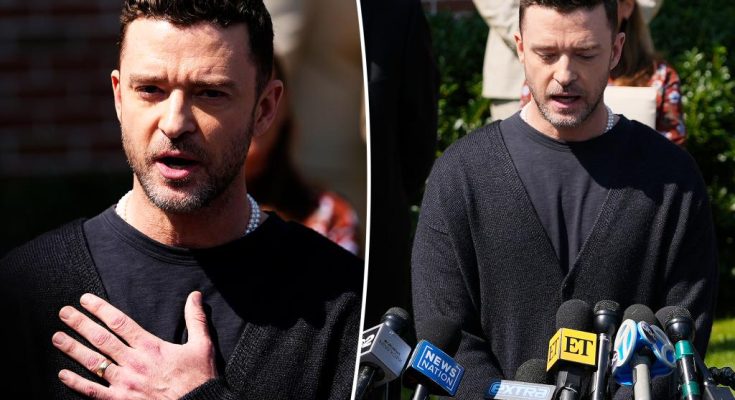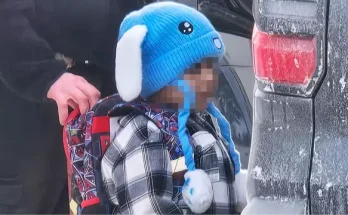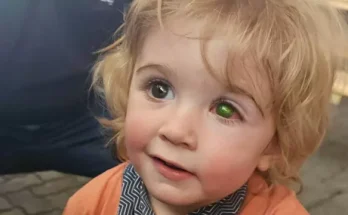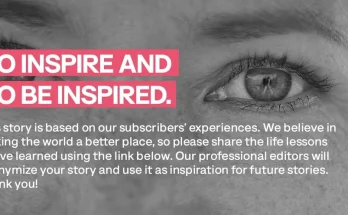Justin Timberlake issued a court-ordered apology Friday after accepting a plea deal in his DWI case.
“Even if you’ve had one drink, don’t get behind the wheel of a car. There’s so many alternatives — call a friend, take an Uber, there’s many travel apps, take a taxi,” Timberlake said in front of a crowd of reporters gathered outside the Sag Harbor courthouse.
“This is a mistake that I made, but I’m hoping that whoever is watching and listening right now can learn from this mistake. I know that I certainly have.”


Earlier Friday, the “Mirrors” crooner formally pleaded guilty to a traffic violation, driving while ability impaired (DWAI), which is not a criminal offense unlike his original driving while intoxicated (DWI) charge.
The main difference between a DWAI and DWI is the level of intoxication, according to legal experts.
A judge ordered Timberlake, 43, to pay a $500 fine, perform 25 hours of community service at a nonprofit and appear in a public service announcement on the dangers of drunk driving.


The pop star arrived at the courthouse early in the morning wearing brown trousers, a black T-shirt and a matching cardigan.
During the hearing, Timberlake said he had a lot of “time to reflect” following his June arrest. He told the judge that he was filled with “disappointment” in himself and knows he “did not live up to the standard” he holds himself to, per People.
“I found myself in a position where I should’ve taken a moment,” he said in the courtroom. “I understand and appreciate the seriousness of this.”
The hitmaker also took “a moment to show gratitude to everybody involved” and apologized for putting a “strain” on the small town in the Hamptons.


After news of his plea deal broke earlier this week, Suffolk County District Attorney Ray Tierney told Page Six exclusively that Timberlake’s case had been handled with the same amount of care as any other offender.
“The one thing that we want to make sure we’re doing is … being consistent, and we don’t want to treat any defendant better than others because of … any perceived notoriety they may have,” Tierney told us.
“But we certainly don’t want to treat people worse for the same reason,” he added. “So we’re taking pains to make sure that we’re treating this case like any other case of its kind.”





